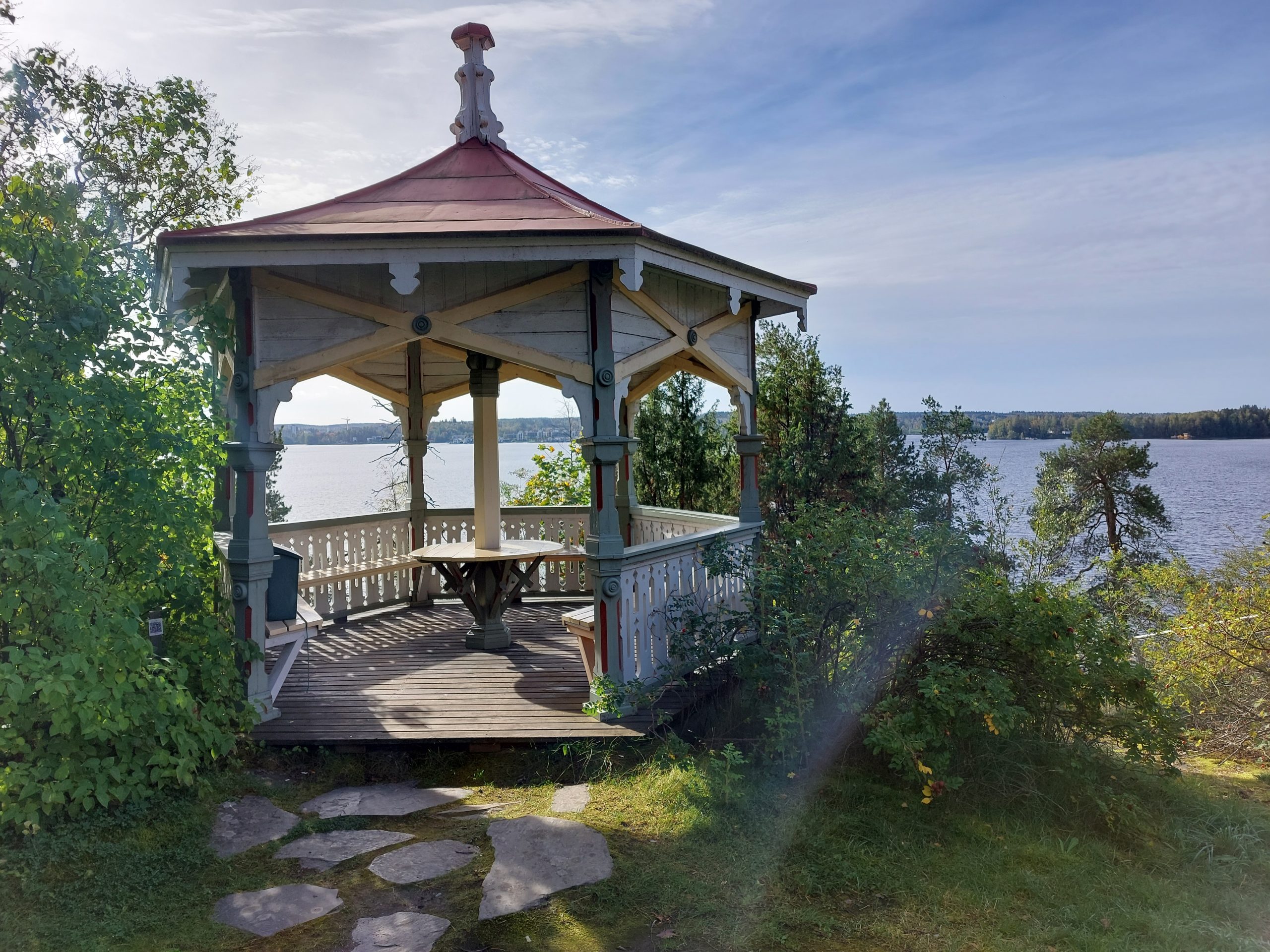There is a joke going around online pointing out that when academics use the word ‘retreat’, what they mean is an off-campus all-day meeting.
On some level the Tampere University Game Research Lab Fall 2023 Writing Retreat fits that description. This two day event at the picturesque lakeside sauna at Varala brought together 21 game scholars to spend time together in a highly controlled and organized manner. However, unlike usual academic retreats, there was only one five minute powerpoint presentation and the only part that was meeting-like was the opening warm-up exercise where groups of two to four participants created academic abstracts in a Paper Jam (like a game jam, but for creating academic papers). Most of the time was spent on silently writing together.

Both days were organized around Shut Up and Write -sessions. This means that for 40-45 minutes everyone present would be silent (no talking, no chatting online, phones on silent, messaging services and email turned off) and writing. These would be followed by 15-20 minute breaks for chatting, getting coffee, stepping out for fresh air, and stretching. Before the event all participants had been asked to prepare goals (both goals that they know they can achieve and more demanding goals) and to think about what it is that they will be writing. The social pressure to write, and the clear alibi to ignore disruptions, helps concentrate on writing, as advocated by the pomodoro style of writing.


The event had two goals: to bring the whole team together and to help people work towards their fall period writing targets. Although not everyone from the Game Research Lab was able to participate, almost all did. The event brought together everyone from professors to PhD students as well as several visiting scholars. As a number of new people have started during the preceding month, the event was also well-timed for getting to know people.
Writing goals were tracked with post-it notes on a flip board, but this was done more as a visual encouragement than to track any single target goal. The goals set by participants varied from finishing a PhD dissertation (not achieved during the two-day retreat) to eating a donut (achieved on the second day).


At the end of the first day there was a possibility to stay for an evening of unwinding with sauna and swimming. Most participants did. In the afternoon of the second day there was an organized brisk walk in nature to re-energize.
At the end of two days, people seemed happy, but also tired. Writing is quite taxing. Visiting Fullbright Professor Casey O’Donnell, who studies game production, summed up this event of academic production:
My first thought for describing the labor of the retreat was that it was like a game jam, but for game scholars working on various writing projects. I don’t think that comparison works though. While there was an intensity level to work, it didn’t feel like the “crunch” that often emerges during game jams (even despite folks’ best efforts to avoid it). This felt like a hot yoga class with no instructor and each person quietly working through their own set of movements or forms. Sure, it was uncomfortable at times, but we took breaks and chatted with one another about what we were working through and why. Of course, there was a sauna involved, so finding a metaphor that includes dark, hot and sweaty might make more sense with that in mind…
Based on participant feedback, the event was succesful on many levels:
Writing retreats do not resemble the normal pace of writing, they are by definition more focused and more intense. But the organizers of this event were extremely thoughtful about caring for the participants, ensuring everything for props like post-it notes to necessary tech like extension cords to interesting breaks like the walk to plentiful refreshments. These considerations mean that the retreat was very comfortable as well as productive.
The writing retreat was supported by Tampere University’s WE bonus funding and the Centre of Excellence in Game Culture Studies.
Text: Jaakko Stenros
Photos: Usva Friman
